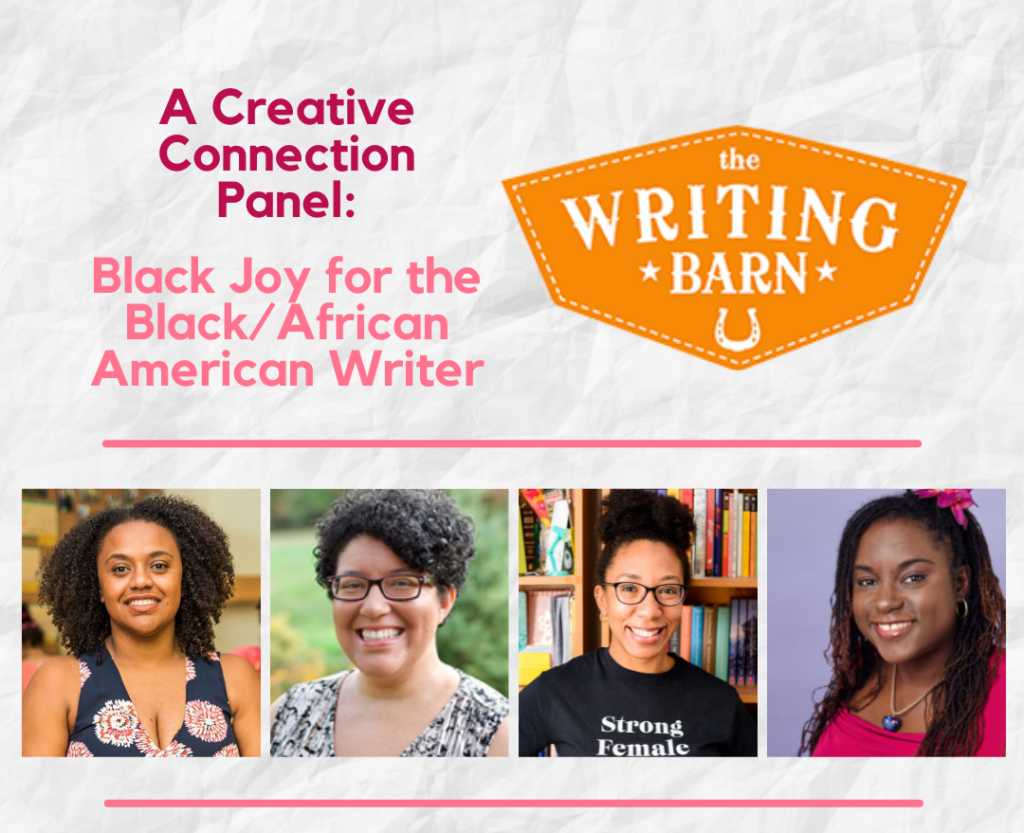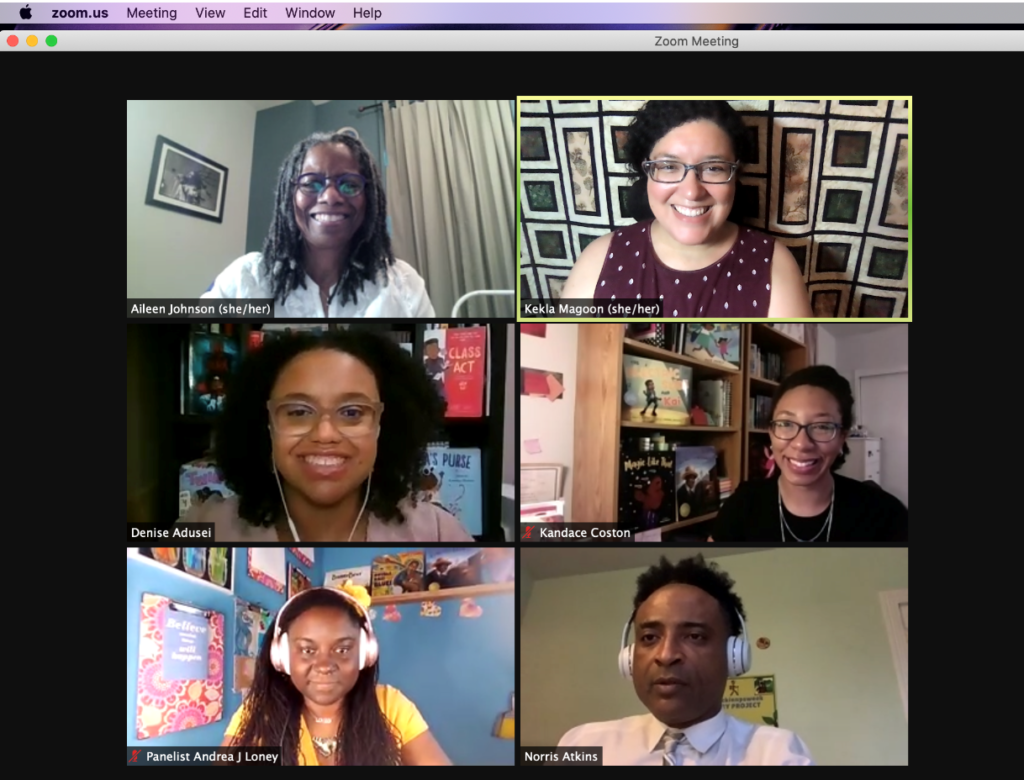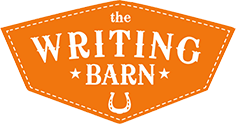The Writing Barn Creative Connections Series
At The Writing Barn, we believe deeply that the purpose of publishing is to be seen and heard, to have the tapestry of human experience communicated from writer to reader, heart to heart. It is time for deep and lasting change, and we are committed to learning, listening, and developing equitable programs and inclusive and exclusive offerings when needed.
Thank you Norris Atkins and Aileen Johnson, members of our Diversity Equity and Inclusion committee, for co-moderating a candid, encouraging, and intimate conversation brimming with love for Black Joy, and thanks Aileen Johnson for sharing key takeaways in the essay below.
For the publishing industry to shift from the broken country-club model of the past to an inclusive and thriving industry where we can grow, separate and together, a community garden of varied voices, #ownvoice writers must meet in community to bond, share experiences, and contemplate the continued needed actions allies and other #ownvoice identities can take to move the publishing industry forward.
The Writing Barn’s Creative Connections panel series was conceived to facilitate just such conversations. Our fourth panel discussion, Creative Black Joy for the Black/African American Writer, gathered on May 20, 2021. Our panelists were Award Winning Authors Andrea Loney and Kekla Magoon, Kandace Coston, Associate Editor, LEE & LOW BOOKS, and Denise Adusei, Founder and Executive Director of Peartree Preschool.

Themes of the night included: doing things that bring you joy, being true to your voice, embracing your Blackness, cultivating community, writing the truth, sheltering your spirit, collaborating with allies, and so much more. Here are some key takeaways and points to ponder from their enlightening conversation.
Key takeaways:
- Black Joy in children’s literature is about portraying children in books in the ways that we experience children everyday, enjoying life. It’s love and laughter and goofy moments, a little girl playing with sparkles, our food and music, the electric slide, grandma’s purse full of treasures and love connections, our rituals, being silly (or corny), secret shenanigans, taking family pictures, having fun, laughing loudly, and expressing the joy of ourselves. And, as Denise said, “Black Joy is resistance, just by fully being who we are.”
- Navigating the industry often requires us to portray and defend Black Joy to white gatekeepers who have been underexposed to it, or who don’t recognize it when we present it because of the way we have often been reflected in literature. But our main responsibility as creators is always telling our most authentic stories: The full truth of us. The stories we need to tell, the stories that span the Diaspora, the stories that only we can write because of our lived experiences. As Kekla said, we need to dig deep for the stories we want to tell, and keep our eyes on who we want to be as creators, “even when you don’t see a path to publication, even when people are telling you there is no path to publication.” As an editor at LEE & LOW, Kandace is in the enviable position of using her position to look for opportunities to showcase fresh new voices like the creators Kelly J. Baptist, and Darnell Johnson, author and illustrator of The Electric Slide and Kai, the story of a little Brown boy who wants to learn the Electric Slide to dance with his family at his aunt Nina’s wedding.
- We can amplify Black Joy within the industry in powerful ways. We can support our writing community on Instagram, Twitter, Pinterest, and our personal social media author and organizational websites. We can push to have our titles purchased by public and school libraries. We can support Brown and Black bookstores. As Andrea points out, we can look for opportunities to build book connection bridges in our writing, critique and educational circles, and she’ll introduce fans of WIMPY KID to NEW KID for example. But, as Kandace reminds us, we don’t have to be Black spokespersons, even when the industry asks us to amplify Black voices in this way. Nor is it our job to educate everybody.
- We are made stronger by the company we keep! Finding and engaging in a supportive writing community is critical. It will encourage us as we create, revise, rewrite, and re-envision our manuscripts. It will sustain us through honest critiques and inevitable setbacks. It will fortify us on our publishing journeys of turning “NO” into “YES.” And, it will keep us sane as we cope with the “snail’s pace” (“Hurry up and Wait”) of the publishing industry.

- In addition to sharing their personal journeys creating kid-lit, with stories, advice, tips, and process, the panelists noted that navigating the industry requires us to be mindful about self-care and learning what our needs are as creatives.
- From Denise: Self-care is making sure our authors are in the right headspace to write about joy, which starts by being immersed with a supportive community such as BlackCreatorsinKidLit, with whom we can share frustrations and triumphs.
- From Kandace: Having boundaries in place and knowing what we will and will not take on that the industry might ask of us so that we have the time and energy to do the work we want to do is critical self-care.
- From Kekla: Part of self-care is reminding ourselves that we can only do so much: doing what we can, when we can means we are making progress toward our completed manuscript or revision. And recognizing how slow the business is and being comfortable with that is self-care too.
- From Andrea: There is meditation, and therapy, and the great outdoors. But beyond that, self-care springs from remembering why we do this work – to make a difference in the lives of kids so they can make the world better in the future.
- The panel ended with Panelists discussing their resources and favorites for classes and conferences, finding critique partners and groups, and networking opportunities. This discussion also featured how to approach working with writers, agents and editors that are not Black but allies. Panelists recommended the following.
- The Writing Barn;
- BlackCreatorsInKidLit.com Twitter | Website (under construction);
- KIDLIT411 Twitter | Facebook | Website;
- 12x12challenge.com;
- HighlightsFoundation.org;
- Weneeddiversebooks.org (WDBD);
- Society of Children’s Book Writers and Illustrators (SCBWI);
- TheBrownbookshelf.com;
- American Association of School Librarians (AASL);
- Young Adult Library Services Association (YALSA), and;
- Association for Library Service to Children (ALSC).
This panel can be summed up by Barack Obama’s words quoted during the discussion: “Be confident in your Blackness.”
Not part of a particular #ownvoices community but want to contribute to that community regardless?
Consider donating as an ally HERE. While you might not be able to attend the event itself, you can still make a meaningful impact for that community and show your support via a donation.
A donation to our Diversity, Equity, and Inclusion Fund will go towards the following:
- Scholarships for BIPOC, LGBTQIA+ and Neurodiverse and Disabled writers
- Funding DEI events and panels, including the Creative Connections Panel
Following Creative Connections Panel
Thursday, June 24: Writing While Latinx: Getting Past the Gatekeepers
